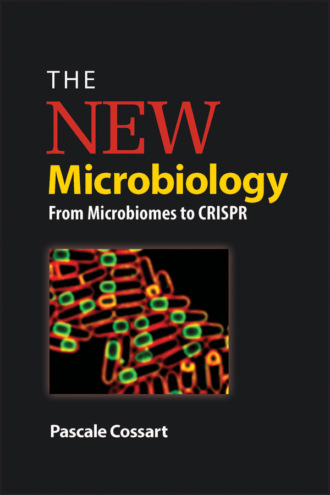
Полная версия
The New Microbiology
Microbiology has undergone radical changes over the past few decades, ushering in an exciting new era in science. In [i][i]The New Microbiology[/i][/i], Pascale Cossart tells a splendid story about the revolution in microbiology, especially in bacteriology. This story has wide-ranging implications for human health and medicine, agriculture, environmental science, and our understanding of evolution. The revolution results from the powerful tools of molecular and cellular biology, genomics, and bioinformatics, which have yielded amazing discoveries, from entire genome sequences to video of bacteria invading host cells. This book is for both scientists and especially nonscientists who would like to learn more about the extraordinary world of bacteria. Dr. Cossart's overview of the field of microbiology research, from infectious disease history to the ongoing scientific revolution resulting from CRISPR technologies, is presented in four parts. New concepts in microbiology introduces the world of bacteria and some recent discoveries about how they live, such as the role of regulatory RNAs including riboswitches, the CRISPR defense system, and resistance to antibiotics. Sociomicrobiology: the social lives of bacteria helps us see the new paradigm by which scientists view bacteria as highly social creatures that communicate in many ways, for example in the assemblies that reside in our intestine or in the environment. The biology of infections reviews some of history's worst epidemics and describes current and emerging infectious diseases, the organisms that cause them, and how they produce an infection. Bacteria as tools introduces us to molecules derived from microbes that scientists have harnessed in the service of research and medicine, including the CRISPR/Cas9 genome-editing technology. [i]The New Microbiology[/i] takes us on a journey through a remarkable revolution in science that is occurring here and now.

